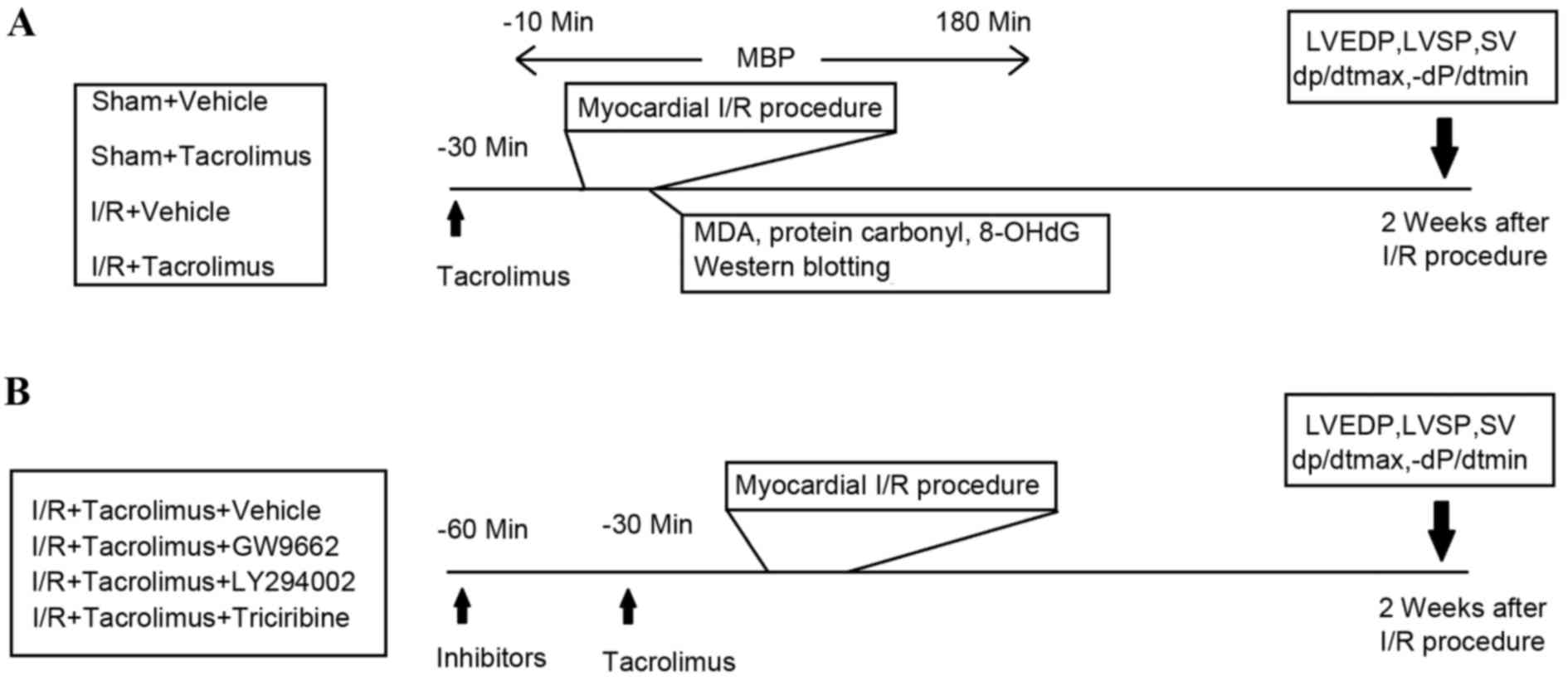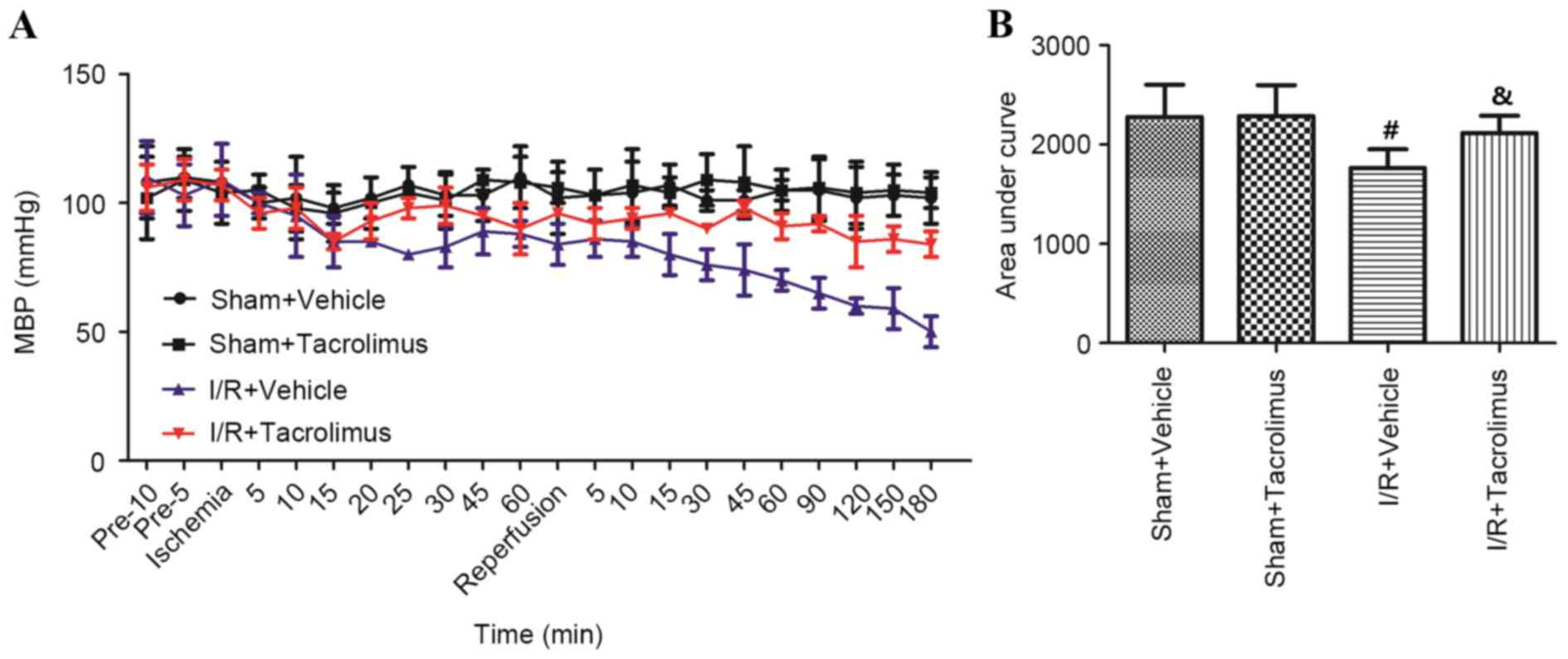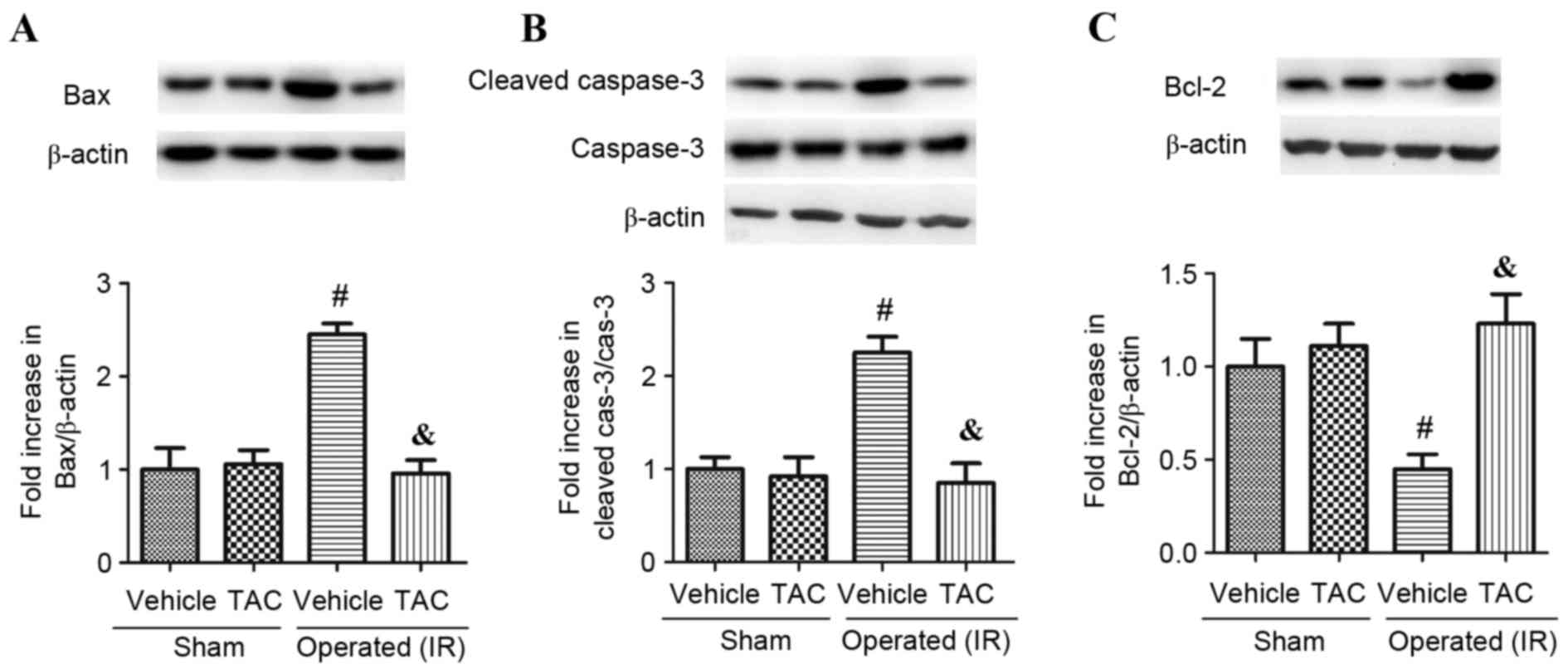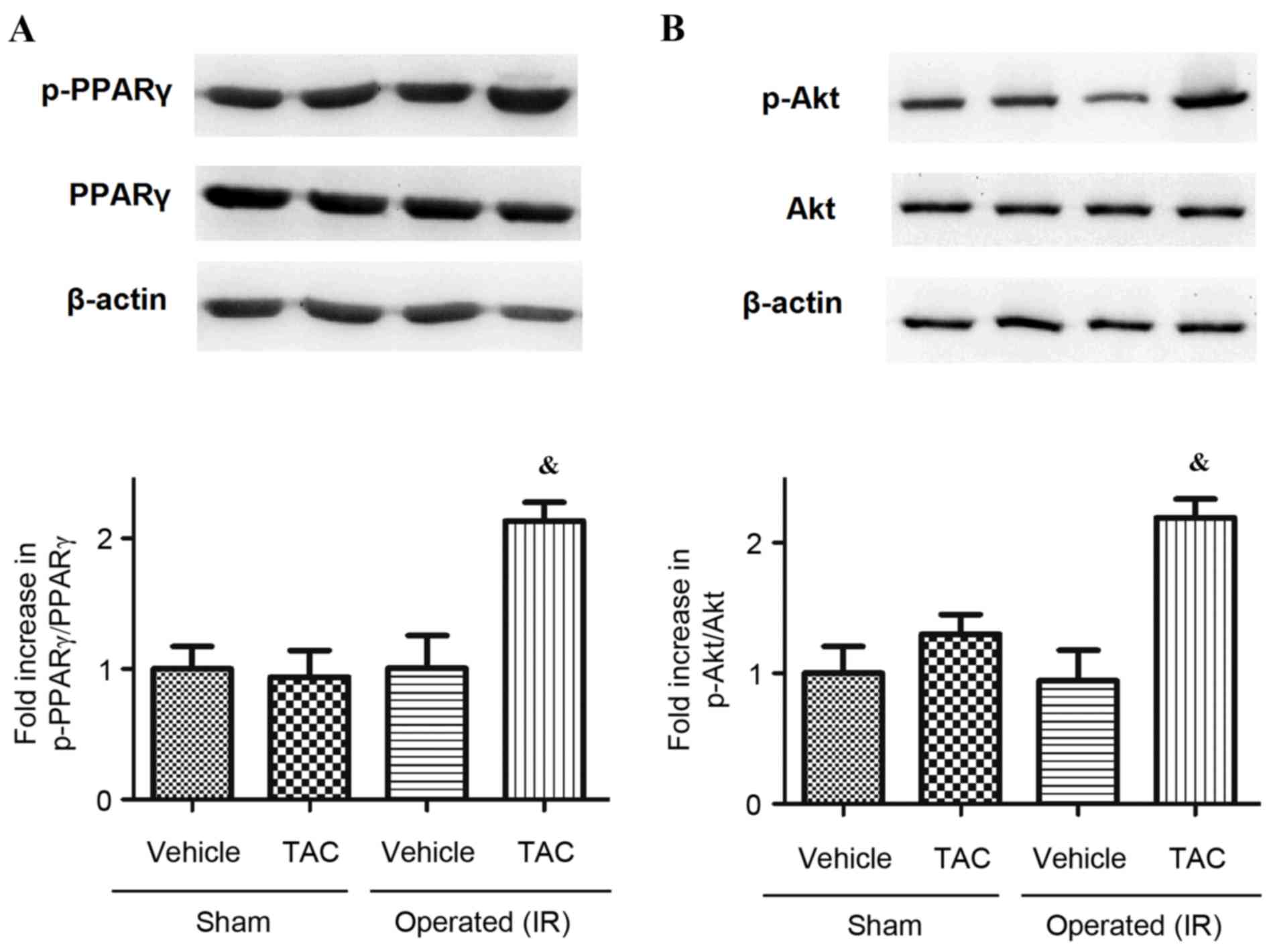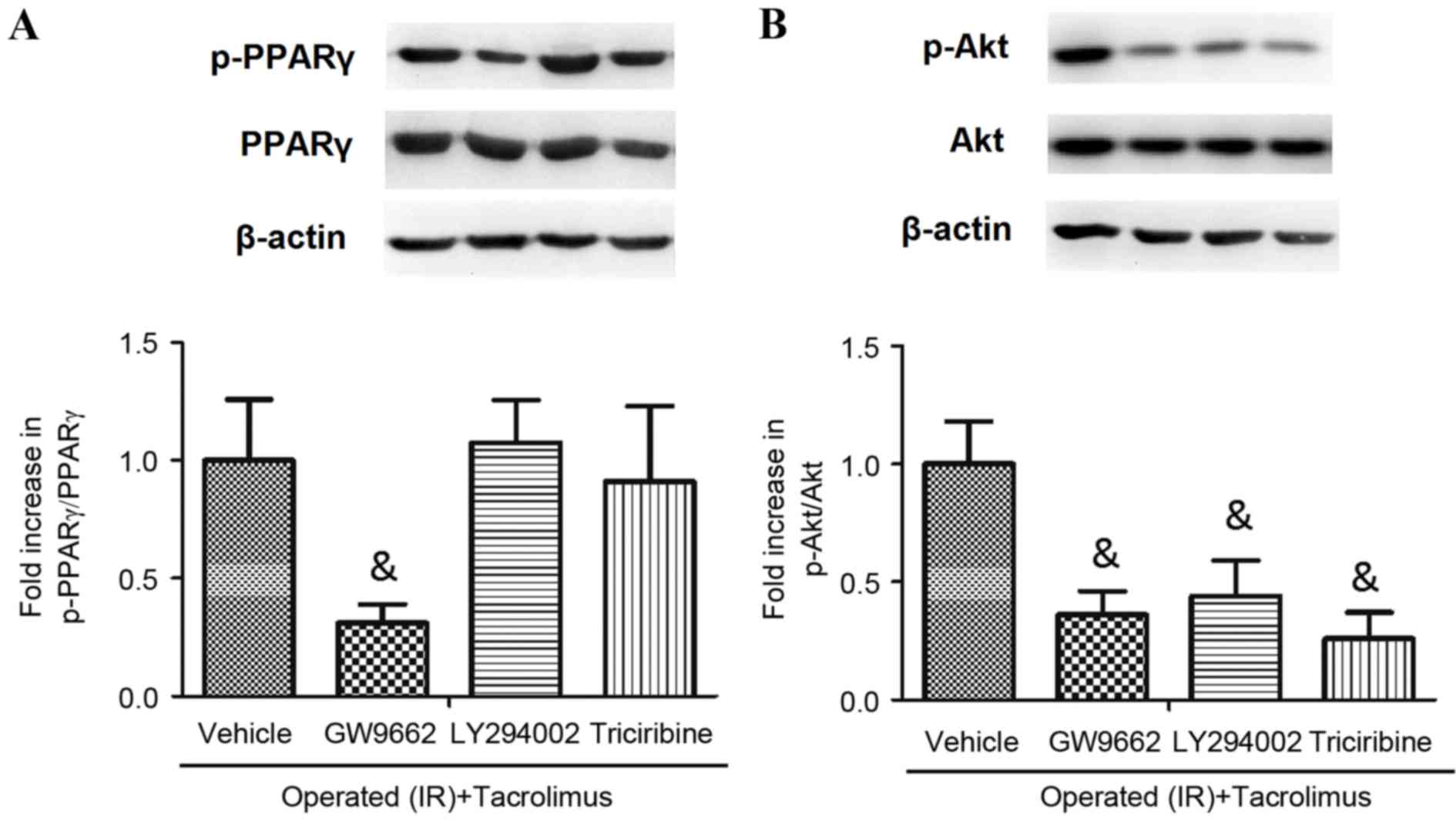|
1
|
Verheugt FW: Antithrombotic therapy to
reduce ischemic events in acute coronary syndromes patients
undergoing percutaneous coronary intervention. Interv Cardiol Clin.
6:131–140. 2017.PubMed/NCBI
|
|
2
|
Helft G, Georges JL, Mouranche X, Loyeau
A, Spaulding C, Caussin C, Benamer H, Garot P, Livarek B, Teiger E,
et al: Outcomes of primary percutaneous coronary interventions in
nonagenarians with acute myocardial infarction. Int J Cardiol.
192:24–29. 2015. View Article : Google Scholar : PubMed/NCBI
|
|
3
|
Yellon DM and Hausenloy DJ: Myocardial
reperfusion injury. N Engl J Med. 357:1121–1135. 2007. View Article : Google Scholar : PubMed/NCBI
|
|
4
|
Hausenloy DJ and Yellon DM: New directions
for protecting the heart against ischaemia-reperfusion injury:
Targeting the reperfusion injury salvage kinase (RISK)-pathway.
Cardiovasc Res. 61:448–460. 2004. View Article : Google Scholar : PubMed/NCBI
|
|
5
|
Monassier JP: Reperfusion injury in acute
myocardial infarction. From bench to cath lab. Part I: Basic
considerations. Arch Cardiovasc Dis. 101:491–500. 2008. View Article : Google Scholar : PubMed/NCBI
|
|
6
|
Park JL and Lucchesi BR: Mechanisms of
myocardial reperfusion injury. Ann Thorac Surg. 68:1905–1912. 1999.
View Article : Google Scholar : PubMed/NCBI
|
|
7
|
Bozlu M, Eskandari G, Cayan S, Canpolat B,
Akbay E and Atik U: The effect of poly (adenosine
diphosphate-ribose) polymerase inhibitors on biochemical changes in
testicular ischemia-reperfusion injury. J Urol. 169:1870–1873.
2003. View Article : Google Scholar : PubMed/NCBI
|
|
8
|
Ekhterae D, Hinmon R, Matsuzaki K, Noma M,
Zhu W, Xiao RP, Gorman RC and Gorman JH III: Infarction induced
myocardial apoptosis and ARC activation. J Surg Res. 166:59–67.
2011. View Article : Google Scholar : PubMed/NCBI
|
|
9
|
Kleinbongard P, Schulz R and Heusch G:
TNFα in myocardial ischemia/reperfusion, remodeling and heart
failure. Heart Fail Rev. 16:49–69. 2011. View Article : Google Scholar : PubMed/NCBI
|
|
10
|
Heusch G, Boengler K and Schulz R:
Inhibition of mitochondrial permeability transition pore opening:
The Holy Grail of cardioprotection. Basic Res Cardiol. 105:151–154.
2010. View Article : Google Scholar : PubMed/NCBI
|
|
11
|
Kroemer G and Reed JC: Mitochondrial
control of cell death. Nat Med. 6:513–519. 2000. View Article : Google Scholar : PubMed/NCBI
|
|
12
|
Weiss JN, Korge P, Honda HM and Ping P:
Role of the mitochondrial permeability transition in myocardial
disease. Circ Res. 93:292–301. 2003. View Article : Google Scholar : PubMed/NCBI
|
|
13
|
Wallemacq PE and Reding R: FK506
(tacrolimus), a novel immunosuppressant in organ transplantation:
Clinical, biomedical, and analytical aspects. Clin Chem.
39:2219–2228. 1993.PubMed/NCBI
|
|
14
|
Kim HC, Hwang EA, Han SY, Park SB, Kim HT
and Cho WH: Primary immunosuppression with tacrolimus in kidney
transplantation: Three-year follow-up in a single center.
Transplant Proc. 36:pp. 2082–2083. 2004; View Article : Google Scholar : PubMed/NCBI
|
|
15
|
Jain A, Reyes J, Kashyap R, Rohal S,
Abu-Elmagd K, Starzl T and Fung J: What have we learned about
primary liver transplantation under tacrolimus immunosuppression?
Long-term follow-up of the first 1000 patients. Ann Surg.
230:441–449. 1999. View Article : Google Scholar : PubMed/NCBI
|
|
16
|
Thomson AW, Bonham CA and Zeevi A: Mode of
action of tacrolimus (FK506): Molecular and cellular mechanisms.
Ther Drug Monit. 17:584–591. 1995. View Article : Google Scholar : PubMed/NCBI
|
|
17
|
Ustundag UV, Sahin S, Ak K, Keskin I and
Emekli-Alturfan E: The effects of tacrolimus on the activity and
expression of tissue factor in the rat ovary with
ischemia-reperfusion induced injury. Reprod Biol. 15:139–145. 2015.
View Article : Google Scholar : PubMed/NCBI
|
|
18
|
Pratschke S, Bilzer M, Grützner U, Angele
M, Tufman A, Jauch KW and Schauer RJ: Tacrolimus preconditioning of
rat liver allografts impacts glutathione homeostasis and early
reperfusion injury. J Surg Res. 176:309–316. 2012. View Article : Google Scholar : PubMed/NCBI
|
|
19
|
Badr R, Hashemi M, Javadi G, Movafagh A
and Mahdian R: Assessment of global ischemic/reperfusion and
Tacrolimus administration on CA1 region of hippocampus: Gene
expression profiles of BAX and BCL2 genes. Bratisl Lek Listy.
117:358–362. 2016.PubMed/NCBI
|
|
20
|
Chen K, Li JJ, Li SN, Feng J, Liu T, Wang
F, Dai WQ, Xia YJ, Lu J, Zhou YQ and Guo CY:
15-Deoxy-Δ12,14-prostaglandin J2 alleviates hepatic
ischemia-reperfusion injury in mice via inducing antioxidant
response and inhibiting apoptosis and autophagy. Acta Pharmacol
Sin. 38:672–687. 2017. View Article : Google Scholar : PubMed/NCBI
|
|
21
|
Stechschulte LA, Hinds TD Jr, Ghanem SS,
Shou W, Najjar SM and Sanchez ER: FKBP51 reciprocally regulates GRα
and PPARγ activation via the Akt-p38 pathway. Mol Endocrinol.
28:1254–1264. 2014. View Article : Google Scholar : PubMed/NCBI
|
|
22
|
National Research Council: Division on
Earth and Life StudiesInstitute for Laboratory Animal Research;
Committee for the Update of the Guide for the Care and Use of
Laboratory Animals: Guide for the Care and Use of Laboratory
Animals. 8th. The National Academies Press; Washigton, DC: 2011
|
|
23
|
Zhou C, Bai J, Jiang C, Ye L, Pan Y and
Zhang H: Geranylgeranylacetone attenuates myocardium
ischemic/reperfusion injury through HSP70 and Akt/GSK-3β/eNOS
pathway. Am J Transl Res. 9:386–395. 2017.PubMed/NCBI
|
|
24
|
Su HH, Chu YC, Liao JM, Wang YH, Jan MS,
Lin CW, Wu CY, Tseng CY, Yen JC and Huang SS: Phellinus linteus
mycelium alleviates myocardial ischemia-reperfusion injury through
autophagic regulation. Front Pharmacol. 8:1752017. View Article : Google Scholar : PubMed/NCBI
|
|
25
|
Curtis MJ, Hancox JC, Farkas A, Wainwright
CL, Stables CL, Saint DA, Clements-Jewery H, Lambiase PD, Billman
GE, Janse MJ, et al: The Lambeth Conventions (II): Guidelines for
the study of animal and human ventricular and supraventricular
arrhythmias. Pharmacol Ther. 139:213–248. 2013. View Article : Google Scholar : PubMed/NCBI
|
|
26
|
Sivasinprasasn S, Tanajak P, Pongkan W,
Pratchayasakul W, Chattipakorn SC and Chattipakorn N: DPP-4
inhibitor and estrogen share similar efficacy against cardiac
ischemic-reperfusion injury in obese-insulin resistant and
estrogen-deprived female rats. Sci Rep. 7:443062017. View Article : Google Scholar : PubMed/NCBI
|
|
27
|
Weng D, Lu Y, Wei Y, Liu Y and Shen P: The
role of ROS in microcystin-LR-induced hepatocyte apoptosis and
liver injury in mice. Toxicology. 232:15–23. 2007. View Article : Google Scholar : PubMed/NCBI
|
|
28
|
Levine RL, Wehr N, Williams JA, Stadtman
ER and Shacter E: Determination of carbonyl groups in oxidized
proteins. Methods Mol Biol. 99:15–24. 2000.PubMed/NCBI
|
|
29
|
Umemura T, Tasaki M, Kijima A, Okamura T,
Inoue T, Ishii Y, Suzuki Y, Masui N, Nohmi T and Nishikawa A:
Possible participation of oxidative stress in causation of cell
proliferation and in vivo mutagenicity in kidneys of gpt delta rats
treated with potassium bromate. Toxicology. 257:46–52. 2009.
View Article : Google Scholar : PubMed/NCBI
|
|
30
|
Musman J, Pons S, Barau C, Caccia C, Leoni
V, Berdeaux A, Ghaleh B and Morin D: Regular treadmill exercise
inhibits mitochondrial accumulation of cholesterol and oxysterols
during myocardial ischemia-reperfusion in wild-type and ob/ob mice.
Free Radic Biol Med. 101:317–324. 2016. View Article : Google Scholar : PubMed/NCBI
|
|
31
|
Bernier M, Manning AS and Hearse DJ:
Reperfusion arrhythmias: Dose-related protection by anti-free
radical interventions. Am J Physiol. 256:H1344–H1352.
1989.PubMed/NCBI
|
|
32
|
Yamazaki S, Fujibayashi Y, Rajagopalan RE,
Meerbaum S and Corday E: Effects of staged versus sudden
reperfusion after acute coronary occlusion in the dog. J Am Coll
Cardiol. 7:564–572. 1986. View Article : Google Scholar : PubMed/NCBI
|
|
33
|
Motloch LJ and Akar FG: Gene therapy to
restore electrophysiological function in heart failure. Expert Opin
Biol Ther. 15:803–817. 2015. View Article : Google Scholar : PubMed/NCBI
|
|
34
|
Donahue JK: Gene therapy for ventricular
tachyarrhythmias. Gene Ther. 19:600–605. 2012. View Article : Google Scholar : PubMed/NCBI
|
|
35
|
Neri M, Fineschi V, Di Paolo M, Pomara C,
Riezzo I, Turillazzi E and Cerretani D: Cardiac oxidative stress
and inflammatory cytokines response after myocardial infarction.
Curr Vasc Pharmacol. 13:26–36. 2015. View Article : Google Scholar : PubMed/NCBI
|
|
36
|
Mughal W, Dhingra R and Kirshenbaum LA:
Striking a balance: Autophagy, apoptosis, and necrosis in a normal
and failing heart. Curr Hypertens Rep. 14:540–547. 2012. View Article : Google Scholar : PubMed/NCBI
|
|
37
|
Pan F, Cheng YX, Zhu CL, Tao FH, Li ZH,
Tao HY, He B, Yu L, Ji P and Tang H: Tacolimus postconditioning
alleviates apoptotic cell death in rats after spinal cord
ischemia-reperfusion injury via up-regulating
protein-serine-threonine kinases phosphorylation. J Huazhong Univ
Sci Technolog Med Sci. 33:852–856. 2013. View Article : Google Scholar : PubMed/NCBI
|
|
38
|
Love S, Mudasir MA, Bhardwaj SC, Singh G
and Tasduq SA: Long-term administration of tacrolimus and
everolimus prevents high cholesterol-high fructose-induced
steatosis in C57BL/6J mice by inhibiting de-novo lipogenesis.
Oncotarget. 8:113403–113417. 2017. View Article : Google Scholar : PubMed/NCBI
|
|
39
|
Jin J, Jin L, Lim SW and Yang CW: Klotho
deficiency aggravates tacrolimus-induced renal injury via the
phosphatidylinositol 3-kinase-Akt-forkhead box protein O pathway.
Am J Nephrol. 43:357–365. 2016. View Article : Google Scholar : PubMed/NCBI
|
|
40
|
Li H, Lu W, Cai WW, Wang PJ, Zhang N, Yu
CP, Wang DL, Liu BC and Sun W: Telmisartan attenuates
monocrotaline-induced pulmonary artery endothelial dysfunction
through a PPAR gamma-dependent PI3K/Akt/eNOS pathway. Pulm
Pharmacol Ther. 28:17–24. 2014. View Article : Google Scholar : PubMed/NCBI
|
|
41
|
Yuen CY, Wong WT, Tian XY, Wong SL, Lau
CW, Yu J, Tomlinson B, Yao X and Huang Y: Telmisartan inhibits
vasoconstriction via PPARγ-dependent expression and activation of
endothelial nitric oxide synthase. Cardiovasc Res. 90:122–129.
2011. View Article : Google Scholar : PubMed/NCBI
|
|
42
|
Maejima Y, Okada H, Haraguchi G, Onai Y,
Kosuge H, Suzuki J and Isobe M: Telmisartan, a unique ARB, improves
left ventricular remodeling of infarcted heart by activating PPAR
gamma. Lab Invest. 91:932–944. 2011. View Article : Google Scholar : PubMed/NCBI
|
|
43
|
Mullonkal CJ and Toledo-Pereyra LH: Akt in
ischemia and reperfusion. J Invest Surg. 20:195–203. 2007.
View Article : Google Scholar : PubMed/NCBI
|
|
44
|
Matsui T, Tao J, del Monte F, Lee KH, Li
L, Picard M, Force TL, Franke TF, Hajjar RJ and Rosenzweig A: Akt
activation preserves cardiac function and prevents injury after
transient cardiac ischemia in vivo. Circulation. 104:330–335. 2001.
View Article : Google Scholar : PubMed/NCBI
|
|
45
|
Li L, Zhou Y, Li Y, Wang L, Sun L, Zhou L,
Arai H, Qi Y and Xu Y: Aqueous extract of Cortex Dictamni protects
H9c2 cardiomyocytes from hypoxia/reoxygenation-induced oxidative
stress and apoptosis by PI3K/Akt signaling pathway. Biomed
Pharmacother. 89:233–244. 2017. View Article : Google Scholar : PubMed/NCBI
|
|
46
|
Tang L, Mo Y, Li Y, Zhong Y, He S, Zhang
Y, Tang Y, Fu S, Wang X and Chen A: Urolithin A alleviates
myocardial ischemia/reperfusion injury via PI3K/Akt pathway.
Biochem Biophys Res Commun. 486:774–780. 2017. View Article : Google Scholar : PubMed/NCBI
|















